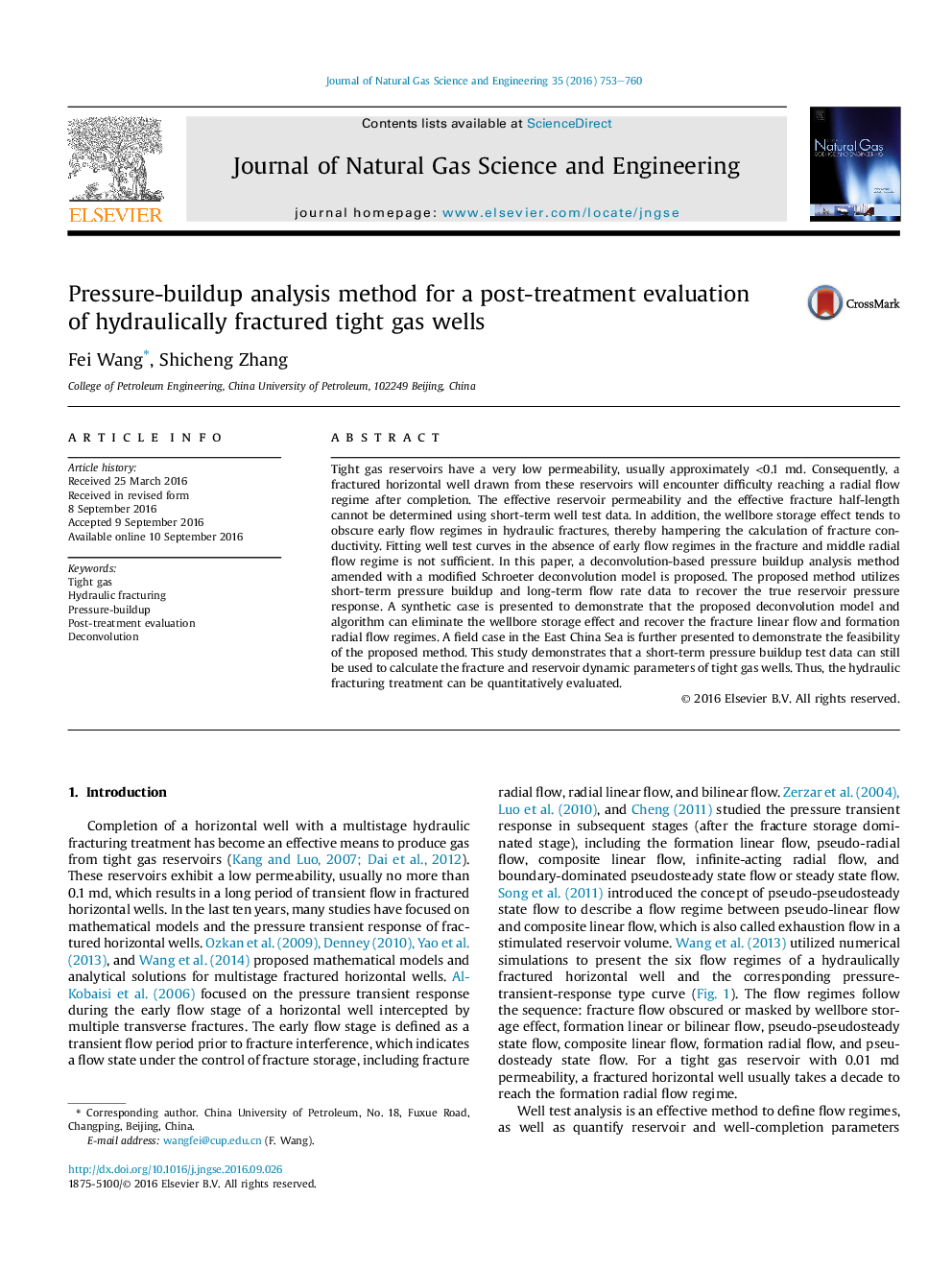| کد مقاله | کد نشریه | سال انتشار | مقاله انگلیسی | نسخه تمام متن |
|---|---|---|---|---|
| 6481584 | 1399419 | 2016 | 8 صفحه PDF | دانلود رایگان |
- A modified Schroeter deconvolution model for hydraulically fractured tight gas wells is developed.
- A deconvolution-based pressure-buildup analysis method for post-fracturing evaluation is proposed.
- A synthetic case is presented to demonstrate the pressure-buildup analysis procedures using the developed model.
- A field case in the East China Sea is presented to demonstrate the feasibility of the proposed method.
Tight gas reservoirs have a very low permeability, usually approximately <0.1Â md. Consequently, a fractured horizontal well drawn from these reservoirs will encounter difficulty reaching a radial flow regime after completion. The effective reservoir permeability and the effective fracture half-length cannot be determined using short-term well test data. In addition, the wellbore storage effect tends to obscure early flow regimes in hydraulic fractures, thereby hampering the calculation of fracture conductivity. Fitting well test curves in the absence of early flow regimes in the fracture and middle radial flow regime is not sufficient. In this paper, a deconvolution-based pressure buildup analysis method amended with a modified Schroeter deconvolution model is proposed. The proposed method utilizes short-term pressure buildup and long-term flow rate data to recover the true reservoir pressure response. A synthetic case is presented to demonstrate that the proposed deconvolution model and algorithm can eliminate the wellbore storage effect and recover the fracture linear flow and formation radial flow regimes. A field case in the East China Sea is further presented to demonstrate the feasibility of the proposed method. This study demonstrates that a short-term pressure buildup test data can still be used to calculate the fracture and reservoir dynamic parameters of tight gas wells. Thus, the hydraulic fracturing treatment can be quantitatively evaluated.
Journal: Journal of Natural Gas Science and Engineering - Volume 35, Part A, September 2016, Pages 753-760
